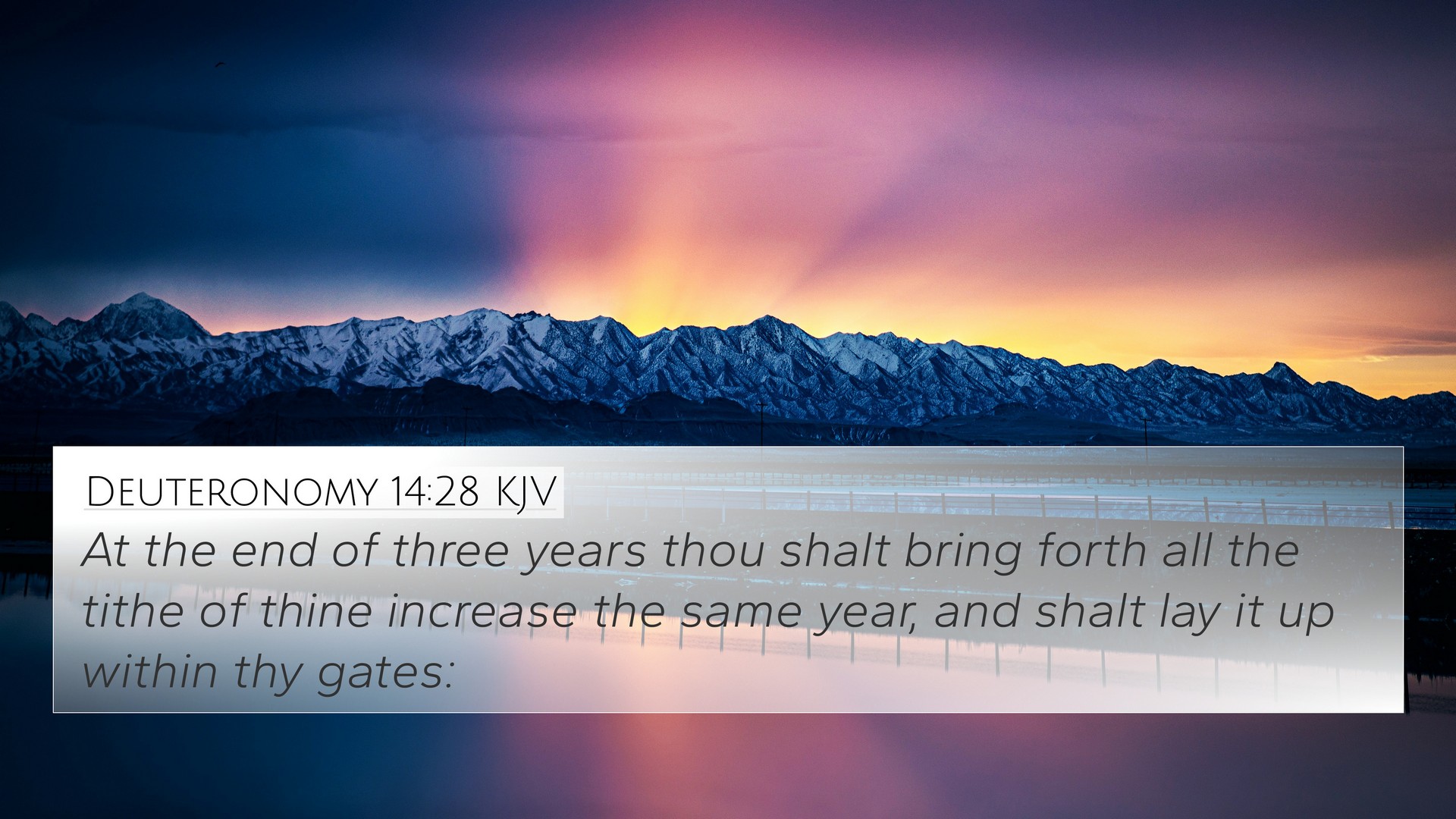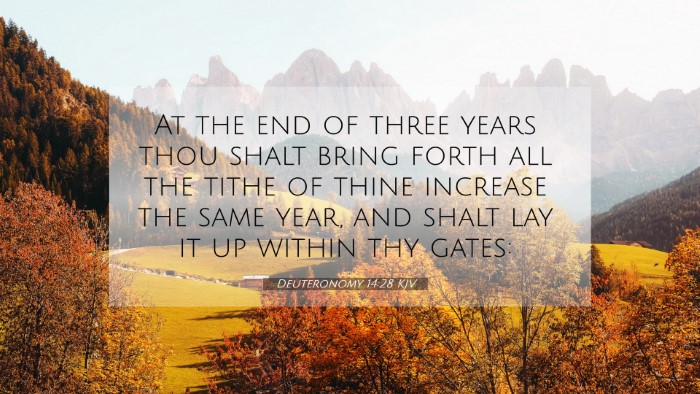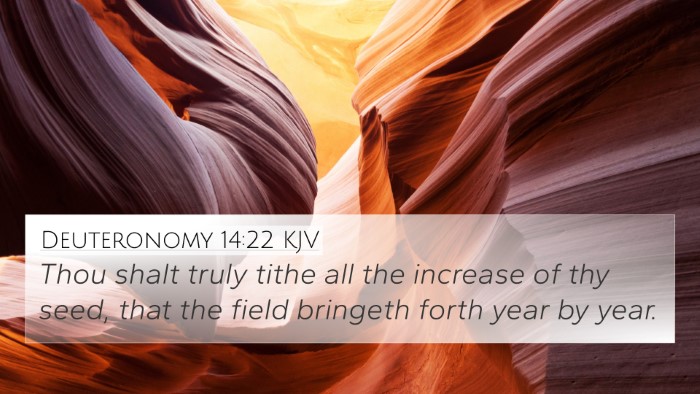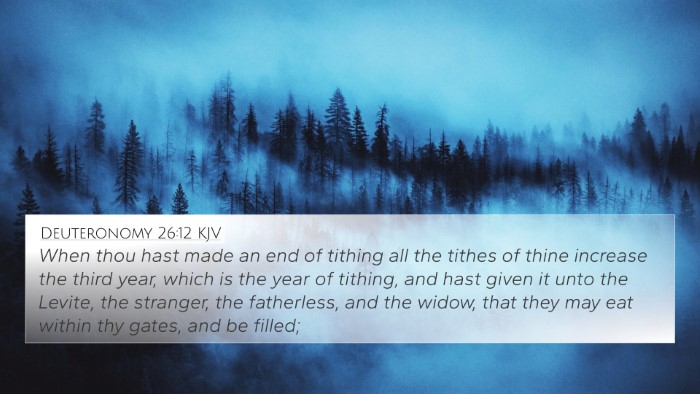Understanding Deuteronomy 14:28
Verse: "At the end of every third year, bring all the tithes of that year’s produce and store it in your towns."
This verse tackles the importance of tithing, specifically highlighting the cycle of giving that the Israelites were to follow. There is a rich contextual backdrop in this decree that has implications both for his audience in the Old Testament and for readers today.
Key Themes and Interpretations
- Divine Ownership: Every item that the Israelites acquired was considered to be owned by God. The tithes represented an acknowledgment of this divine ownership.
- Social Responsibility: The instructions about storing tithes in towns demonstrate a sense of community and support for those less fortunate.
- Regularity of Giving: The command emphasizes the importance of systematic generosity rather than sporadic giving.
- Provision for the Levites and the Poor: Tithing was crucial also for supporting the Levites who had no land of their own, as well as the widows and orphans in the community.
Commentary Insights
Matthew Henry: Henry emphasizes that this ordinance illustrates God's care for the Levites, who were devoted to ministry and did not inherit land. He also points out that tithes cultivate a spirit of gratitude amongst the people.
Albert Barnes: Barnes elaborates on the timeliness of this command, noting that the distribution every third year highlights the responsibility that each Israelite had not just to himself, but to his community and God's covenant.
Adam Clarke: Clarke explains that tithes serve as not only a means of support for religious leaders but also ensure that no one in the community is neglected, particularly those in need.
Bible Verse Cross-References
- Leviticus 27:30: Discusses the law of tithes and reinforces the concept of divine ownership of all produce.
- Numbers 18:21: States the purpose of the tithes for the Levites, providing context on how the system was set up to support those in religious services.
- Malachi 3:10: Commands the bringing of tithes and offerings into the storehouse, establishing a theme of provision and reward for obedience.
- 2 Corinthians 9:7: Enforces the idea of cheerful giving, linking to the spirit behind tithing as an act of worship and gratitude.
- Deuteronomy 14:22: Expounds further on tithing practices, providing additional regulations that further shape the understanding of sacrificial giving.
- Deuteronomy 26:12: Celebrates the act of tithing and acknowledges the role of generosity in maintaining God’s blessing on the land.
- Proverbs 3:9-10: Encourages honoring the Lord with wealth, a principle that aligns with the practice of tithing to provoke blessings.
Thematic Bible Verse Connections
The theme of tithing can be seen alongside various other scriptures that speak to God's expectations regarding generosity. Here are some ways in which these connections manifest:
- Generosity: Acts 20:35 ties closely with tithing, mentioning the blessed nature of giving.
- Community Welfare: James 2:15-17 emphasizes faith without works is dead, prompting believers to care for one another, a principle mirrored in the tithing command.
- Faithfulness: Luke 16:10-11 touches on faithfulness in small things correlating with faithful stewardship over resources.
Cross-Referencing Biblical Texts for Deeper Understanding
By cross-referencing Deuteronomy 14:28 with these scriptures, readers can form a holistic understanding of the significance of tithing. Each scripture builds upon the framework that God encourages His people to be generous, support the spiritual leaders, and create a community that embodies care and fellowship.
Conclusion
Deuteronomy 14:28 serves not just as a law but as a guiding principle that fosters a blessed and unified community. As seen through various commentaries and cross-referenced texts, the practice of tithing is multifaceted, intertwining elements of faith, community service, and divine expectation. For those studying the Bible, understanding this verse and its cross-references can illuminate the wider narrative of stewardship and generosity that permeates the scriptures.





